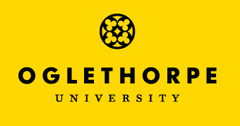Abstract
The primary goal of this literary critique of J.M. Barrie’s novel Peter and Wendy, with the utilization of a feminist psychoanalytical approach, is to explore issues such as: Neverland’s perpetuation of patriarchal structures under the guise of a false modernity and Wendy’s inability to achieve modernity through the societal expectations that undermine the freedom within Peter’s Neverland, as well as her inherent tendencies to gravitate to the traditional feminine role. The arguments and conversation of this topic is based upon a close reading of the Centennial Edition of The Annotated Peter Pan, Barrie’s Peter and Wendy, and articles from notable literary critiques. This approach to the primary text highlights the idea that the Victorian era focuses on the mandated organization of a societal hierarchy and depletes the growth of modernistic values within its women. Barrie’s work with gender displays the boundaries between men and women, and the struggle to reach a sort of transcendence of traditional roles. Modernity and it’s advancements in Barrie’s novel refer to the capability of a woman to achieve social or political mobility within the Victorian patriarchal system, while also breaking the traditional mold of femininity. Within Peter and Wendy the Victorian woman is the idealized perfect female that adheres to the patriarchal structure of the good, doting wife and mother. In my paper, the critique expands upon Wendy’s attempts to defy tradition, her natural submission to her assigned gender role, her male-regulated interactions with the women in Neverland, and the reproduction of this cycle through the proceeding female generations following Wendy. With the vast and current circulation of many different pop culture adaptations and publishing of critical editions, it can be said that the context of Peter and Wendy is at present worth the exploration of its cultural significance.
Included in
Children's and Young Adult Literature Commons, Comparative Literature Commons, Other Feminist, Gender, and Sexuality Studies Commons
